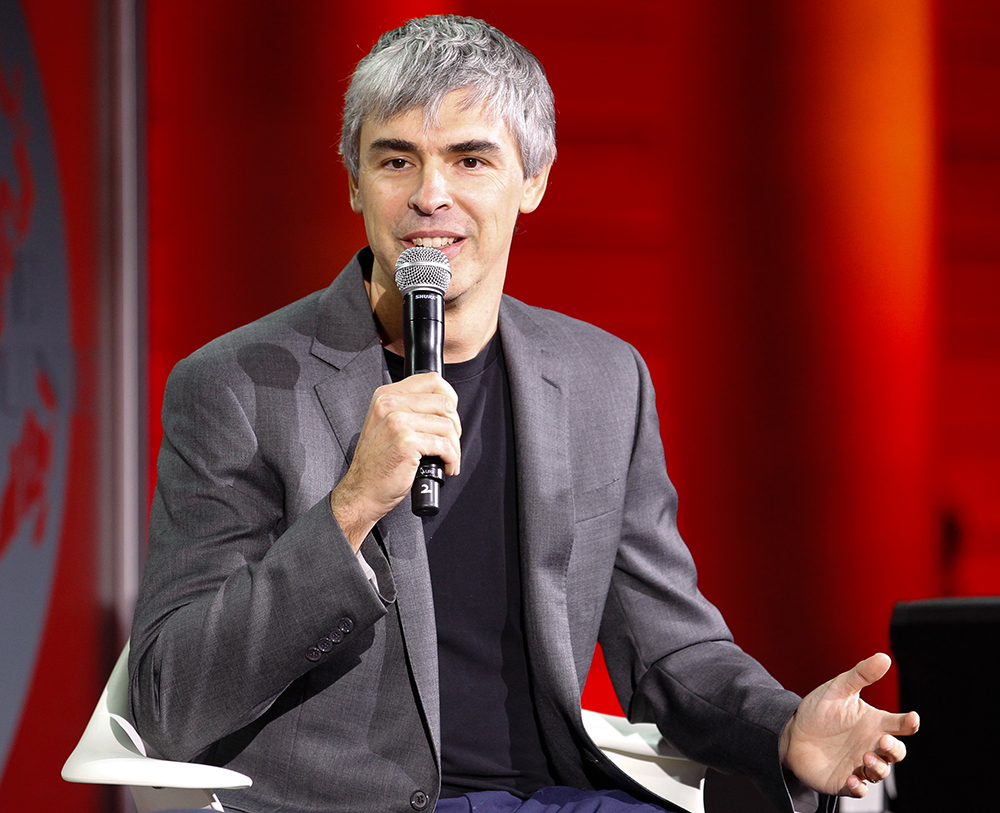
由億萬富翁、谷歌(Google)的聯合創始人拉里·佩奇支持的空中出租車公司Kittyhawk將關閉,這對長期以來一直難以實現的飛行汽車開發夢來說是一大挫折。
“我們已經決定關閉Kittyhawk。”該公司在推特(Twitter)上表示。“我們仍然在研究下一步的細節。”
這家公司的技術預計將通過與波音公司(Boeing Co.)的合資企業Wisk Aero的形式繼續存在。波音公司在9月21日表示,Wisk的運營不會受到Kittyhawk關閉的影響。
Kittyhawk成立于2010年,旨在開拓所謂的電動垂直起降飛行器(eVTOLs)市場,其遠大理想是實現空中交通大眾化。這家神秘的公司由塞巴斯蒂安·特龍運營,他是谷歌的資深人士,曾經參與自動駕駛汽車、增強現實眼鏡和其他項目的工作。
該公司是研究這一概念的幾家初創公司之一,但事實證明,這一挑戰比一些人預期的要大。近幾個月來,空中出租車在測試過程中發生多起墜毀事故,引發了人們對其安全性的擔憂。
媒體Business Insider此前曾經報道過Kittyhawk的關閉計劃。
Kittyhawk于2019年與波音公司成立了合資企業Wisk,這家飛機制造商繼續向該合作伙伴投資4.5億美元。本周早些時候,波音公司和Wisk展示了他們對eVTOLs與大型商用飛機共存的美好愿景。
“Kittyhawk停止運營不會影響波音公司對Wisk的承諾。”該飛機制造商的發言人在電子郵件中表示。“我們很自豪能夠成為Wisk Aero的創始成員,并很高興看到他們為推動未來電動航空旅行的創新和可持續發展所做的努力。”
這家航空業巨頭在今年7月于英國舉辦的范堡羅國際航空航天展覽會(Farnborough International Airshow)上幫助展示了Wisk的旋翼動力飛機Cora。在為這項業務提供資金的同時,波音公司一直在為一款更大的電動四座飛機提供工程資源,Wisk計劃最終讓這款飛機通過美國監管機構的認證。
空中出租車市場仍然有眾多競爭對手,包括Joby Aviation Inc.、Archer Aviation Inc.、德國的Lilium NV和巴西的Eve,但這些公司的前景并不明朗。航空監管機構尚未對新一代載人飛行器進行認證。
Kittyhawk的目標是制造一種可以遠程駕駛的空中出租車,比其他eVTOLs更小更輕,幾乎能夠從任何地方起飛。該公司的目標是讓空中出租車每英里的成本低于1美元,這將使出租車比拼車服務更便宜。
現在Kittyhawk的關閉為備受矚目的eVTOLs先驅之一畫上了句點,并表明要打入這個市場有多么困難。截至9月21日,該公司的主頁上仍然有這樣的消息:“如果有人可以做到這一點,那么我們也能夠做到。”(財富中文網)
譯者:中慧言-王芳
由億萬富翁、谷歌(Google)的聯合創始人拉里·佩奇支持的空中出租車公司Kittyhawk將關閉,這對長期以來一直難以實現的飛行汽車開發夢來說是一大挫折。
“我們已經決定關閉Kittyhawk。”該公司在推特(Twitter)上表示。“我們仍然在研究下一步的細節。”
這家公司的技術預計將通過與波音公司(Boeing Co.)的合資企業Wisk Aero的形式繼續存在。波音公司在9月21日表示,Wisk的運營不會受到Kittyhawk關閉的影響。
Kittyhawk成立于2010年,旨在開拓所謂的電動垂直起降飛行器(eVTOLs)市場,其遠大理想是實現空中交通大眾化。這家神秘的公司由塞巴斯蒂安·特龍運營,他是谷歌的資深人士,曾經參與自動駕駛汽車、增強現實眼鏡和其他項目的工作。
該公司是研究這一概念的幾家初創公司之一,但事實證明,這一挑戰比一些人預期的要大。近幾個月來,空中出租車在測試過程中發生多起墜毀事故,引發了人們對其安全性的擔憂。
媒體Business Insider此前曾經報道過Kittyhawk的關閉計劃。
Kittyhawk于2019年與波音公司成立了合資企業Wisk,這家飛機制造商繼續向該合作伙伴投資4.5億美元。本周早些時候,波音公司和Wisk展示了他們對eVTOLs與大型商用飛機共存的美好愿景。
“Kittyhawk停止運營不會影響波音公司對Wisk的承諾。”該飛機制造商的發言人在電子郵件中表示。“我們很自豪能夠成為Wisk Aero的創始成員,并很高興看到他們為推動未來電動航空旅行的創新和可持續發展所做的努力。”
這家航空業巨頭在今年7月于英國舉辦的范堡羅國際航空航天展覽會(Farnborough International Airshow)上幫助展示了Wisk的旋翼動力飛機Cora。在為這項業務提供資金的同時,波音公司一直在為一款更大的電動四座飛機提供工程資源,Wisk計劃最終讓這款飛機通過美國監管機構的認證。
空中出租車市場仍然有眾多競爭對手,包括Joby Aviation Inc.、Archer Aviation Inc.、德國的Lilium NV和巴西的Eve,但這些公司的前景并不明朗。航空監管機構尚未對新一代載人飛行器進行認證。
Kittyhawk的目標是制造一種可以遠程駕駛的空中出租車,比其他eVTOLs更小更輕,幾乎能夠從任何地方起飛。該公司的目標是讓空中出租車每英里的成本低于1美元,這將使出租車比拼車服務更便宜。
現在Kittyhawk的關閉為備受矚目的eVTOLs先驅之一畫上了句點,并表明要打入這個市場有多么困難。截至9月21日,該公司的主頁上仍然有這樣的消息:“如果有人可以做到這一點,那么我們也能夠做到。”(財富中文網)
譯者:中慧言-王芳
Kittyhawk, the air-taxi company backed by billionaire Google co-founder Larry Page, will be closing down, dealing a setback to the long-elusive dream of developing flying cars.
“We have made the decision to wind down Kittyhawk,” the company said on Twitter. “We’re still working on the details of what’s next.”
The company’s technology is expected to live on in the form of its Wisk Aero joint venture with Boeing Co. Wisk’s operations won’t be affected by Kittyhawk’s shutdown, Boeing said on September 21.
Kittyhawk was founded in 2010 to pioneer the market for so-called eVTOLs — electric vertical takeoff and landing aircraft — with the lofty goal of democratizing the skies. The secretive company was run by Sebastian Thrun, a Google veteran who worked on self-driving cars, augmented-reality glasses and other projects.
The business was one of several startups working on the concept, which has proven to be a greater challenge than some expected. Air taxis have suffered crashes during testing in recent months, raising concerns about their safety.
Business Insider previously reported on Kittyhawk’s plans to close.
Kittyhawk formed its Wisk venture with Boeing Co. in 2019, and the airplane manufacturer went on to invest $450 million in the partnership. Earlier this week, Boeing and Wisk presented their vision for a world where eVTOLs can coexist with larger commercial aircraft.
“Kittyhawk’s decision to cease operations does not change Boeing’s commitment to Wisk,” a spokeswoman for the plane manufacturer said in an email. “We are proud to be a founding member of Wisk Aero and are excited to see the work they are doing to drive innovation and sustainability through the future of electric air travel.”
The aviation titan helped showcase Wisk’s rotor-powered Cora aircraft at the Farnborough International Airshow in July. Along with financing the business, Boeing has been providing engineering resources for a larger, electric four-seater aircraft that Wisk intends to eventually certify with US regulators.
The air-taxi market still has numerous competitors, including Joby Aviation Inc., Archer Aviation Inc., Germany’s Lilium NV and Brazil’s Eve, but they face uncertain prospects for these futuristic vehicles. Aviation regulators haven’t yet certified the new generation of flying machines to transport humans.
Kittyhawk’s goal was to make an air taxi that could be remotely piloted, was smaller and lighter than other eVTOLs, and could take off from nearly anywhere. The company was targeting a cost of less than $1 a mile, which would have made the taxis cheaper than ride-sharing services.
Now Kittyhawk’s shutdown closes a chapter for one of the highest-profile eVTOL pioneers — and shows how hard the market is to crack. As of September 21, the company still had this message on its home page: “If anyone can do this, we can.”






